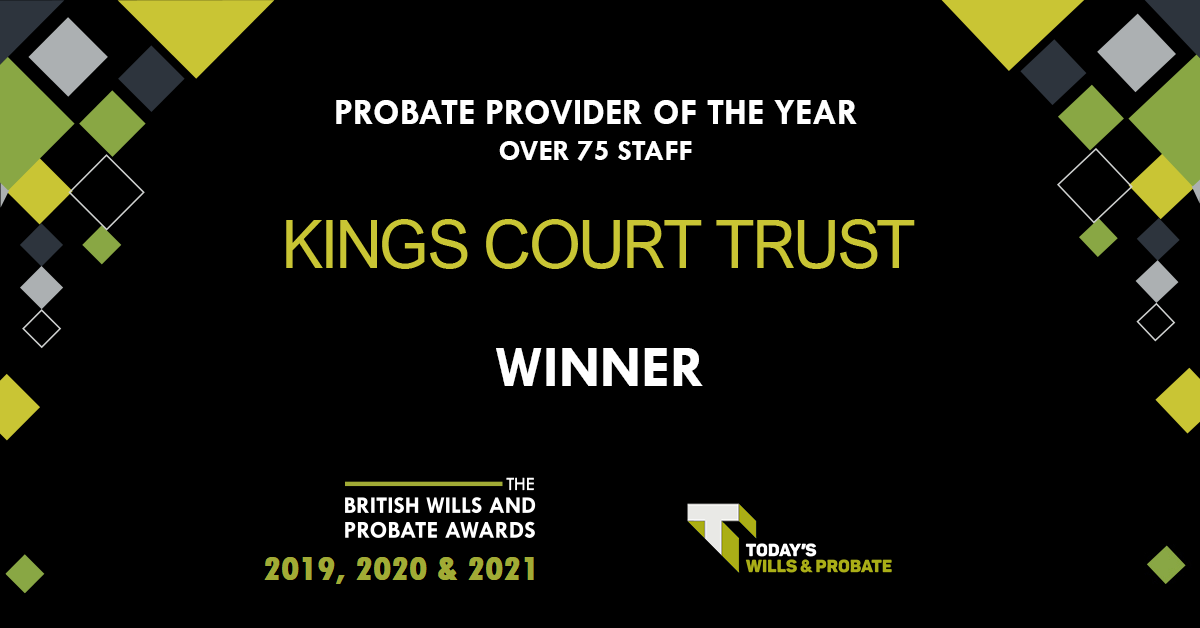When a loved one passes away, there are many tasks that must be completed before their estate can be distributed to the beneficiaries. One of those tasks may be applying for probate; probate is not always needed, but if it’s required, it can be a confusing process that involves a lot of time and effort. This blog aims to simplify probate and explain what it is, when it’s required, and the application process.
What is probate?
The term ‘probate’ refers to the process of obtaining a Grant of Probate, which is a legal document that gives the Executor of a Will the right to proceed with estate administration. ‘Probate’ and ‘estate administration’ are terms which are often confused, but probate is one part of the wider estate administration process. Applying for a Grant of Probate involves a lot of complicated paperwork and can be a time-consuming and overwhelming process for those dealing with the death of a loved one.
What is an Executor of a Will?
An Executor of a Will is responsible for administering the deceased’s estate as per the wishes they left behind. This includes obtaining probate and administering the estate according to the Will’s instruction.
If there is no Will, the role will be appointed to an Administrator; this is usually the deceased’s next of kin. An Administrator has the same responsibilities as an Executor, but they will need to obtain Letters of Administration rather than a Grant of Probate. However, both legal documents provide the Executor or Administrator – also known as a Personal Representative – with the same right to administer the estate and distribute it to the beneficiaries. An estate without a Will is known as ‘intestate’.
What is a beneficiary of a Will?
A beneficiary is anyone named in a Will that will inherit from the estate. They may receive money or other assets, such as personal belongings. Beneficiaries can be individually named or part of a class gift; for example, ‘I leave to my grandchildren…’. Class gifts can cause some difficulty, as it’s not always possible for the Executor to identify every member of the named group, and research may be necessary to ensure no beneficiaries are missed.
If there is no Will, the beneficiaries of the estate will be identified according to the rules of intestacy.
Do you need probate if there is a Will?
The existence of a Will does not affect whether probate is required. Therefore, probate may still be needed if there is a valid Will. Usually, probate is necessary if the deceased owned any sole assets, or their assets exceed the thresholds of the relevant financial institution that their account(s) are held with. Each bank and building society has their own individual threshold. These thresholds are subject to change and typically range between £5,000 and £50,000.
What is the process of applying for probate?
In England and Wales, a Grant of Probate is applied for using a PA1P if there is a Will, or a PA1A if there is not. In Scotland, a Grant of Probate is referred to as ‘Confirmation’; this is applied for by submitting a C1 form.
Before applying for probate, the death must be registered. In addition, all relevant institutions such as banks and utility providers must be contacted so that all assets and debts can be accounted for. To work out whether or not Inheritance Tax (IHT) is required, the estate’s value must also be calculated and may need reporting as part of the probate application process. Depending on the value and makeup of the estate, IHT might be required. The reporting of IHT varies depending on whether it meets the ‘excepted estate’ requirements. You can find out more about Inheritance Tax reporting for excepted estates here.
The death certificate, along with the original Will, can then be sent to the Probate Registry with the correct application form.
- If there’s no IHT to pay and the person passed away on or before 31st December 2021, the value of the estate must be reported using a IHT205 form. You can apply for probate as soon as the online form has been submitted, or alongside form IHT205 if you’re applying for probate and submitting the value via post.
- If there’s no IHT to pay and the person passed away on or after 1st January 2022, the estate’s value will still need to be reported as part of the probate application, but it will not need reporting if it is an excepted estate.
- If IHT is due or full details are needed for other reasons, the IHT400 form must be submitted to HMRC. 20 days must pass after the IHT application before probate is applied for.
Do I need to apply for probate myself?
As an Executor, it is your responsibility to make sure probate is applied for and the estate is administered correctly. However, help is available, and you can instruct a professional provider to complete the complex legal and tax work on your behalf.
Here at Kings Court Trust, we have specialist estate solutions to suit your needs. Our Grant Only service allows you to pass the complex paperwork associated with obtaining a Grant of Probate to us; we will complete the application process and acquire the Grant on your behalf. Additionally, we have a range of solutions for the next steps after probate, including our full estate administration service, should you wish to hand the entire process over to specialists.
How long does probate take to be granted?
According to GOV.UK, it is currently taking up to 16 weeks for probate applications to be processed; paper applications are taking longer than online applications. However, legal professionals and applicants have experienced longer wait times in recent months, and HMCTS backlogs and stopped applications can cause delays to the process.
Can a house be sold before probate?
If the deceased was the sole owner, the property can be put up for sale before a Grant of Probate has been obtained, but the sale cannot be completed until probate is issued.
If the property was jointly owned, the property will automatically pass to the surviving owner without probate being required. Therefore, the new sole owner has the right to sell the property without a Grant of Probate. However, if the property was held as tenants in common with different shares, the deceased’s percentage of the property will form part of their estate. Probate will be required before selling this share; if there are any beneficiaries, they would be entitled to inherit it.
Find out more about what happens to property when someone dies.
What happens after probate is granted?
The next step after acquiring a Grant of Probate is to administer the estate. Estate administration is the process of completing all legal and tax work on the estate, selling or transferring assets and property, producing estate accounts, distributing assets to beneficiaries, and more. The time it takes to complete the estate administration process is unpredictable and varies depending on the estate, but it should be expected that it will take months rather than weeks.
If you have any questions about probate, estate administration, or how Kings Court Trust can help, call our Client Services Team on 0300 303 9000 or fill in the form below.









%20A4%20PNG.png?width=89&height=118&name=AGFD%20Logo%20%2B%20(R)%20A4%20PNG.png)

